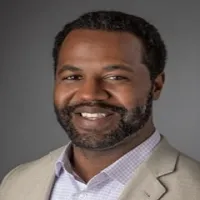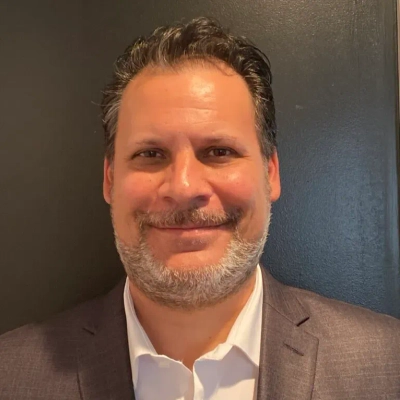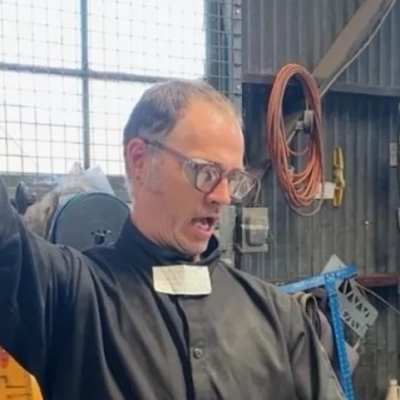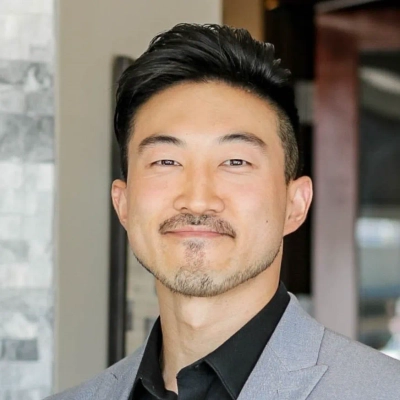25 Essential Insurance Coverages Small Business Owners Initially Overlooked
Small business owners often miss critical insurance coverages that could protect their ventures from unexpected disasters. This comprehensive guide highlights 25 essential insurance policies that experts recommend for safeguarding your business against everything from personal lawsuits to specialized risks like AI health advice and environmental hazards. Discover the often-overlooked protections that could make the difference between business continuity and financial ruin when challenges arise.
Media Liability Insurance Protects Content Creators
I initially overlooked media liability insurance. Since What Kind of Bug Is This is a content site, I assumed general business coverage was enough. But after we had a close call with a misinterpreted article that someone claimed led to property damage, I realized how exposed we really were.
That experience pushed me to get coverage that protects against claims related to content errors, copyright issues, or misleading advice. It wasn't on my radar at first—but once you're publishing at scale, even a simple blog post can carry unexpected risk. If your business creates or shares information, don't skip this one.
Personal Lawsuits Can Destroy Business Assets
When working with a manufacturing company CEO, I witnessed how a personal real estate lawsuit nearly destroyed his 20-year business because of a critical insurance coverage gap. Despite investing over $40,000 annually in various insurance policies, he had overlooked the interconnection between his personal and business liabilities. This experience highlights the importance of comprehensive liability protection that addresses both personal and business activities, especially for small business owners who often have intertwined personal and professional assets.

Vacant Property Needs Specialized Coverage
I never thought much about vacant property insurance until someone broke into one of my empty houses. My standard policy wouldn't cover the vandalism, so I paid for the repairs myself. That was a tough lesson. Now, any property that sits empty for more than a month gets specific vacant coverage. If you have a place that'll be unoccupied, call your agent and check your policy. Do it now.

E&O Insurance Saves Technical Trades
I never thought about errors and omissions insurance until some paperwork on a gas install went sideways. I've seen how these small things blow up into huge problems, so our lawyer told us to get coverage fast. Now I don't panic when a client questions our work. Honestly, if you're in any technical trade, don't wait for a crisis to call an insurance broker.

Key Person Insurance Guards Against Founder Loss
My co-founder went dark right before our product launch at Unity Analytics. Suddenly we were scrambling to cover both his technical work and leadership, trying to ship on time. It was a brutal lesson in how much our company depended on one person. Now, if someone is the linchpin holding things together, we get key person insurance. It's not even a question anymore, it's just what we do.
Mobile Tools Need Inland Marine Coverage
We didn't have tools and equipment insurance until a break-in cost us $12,000 in specialized flooring tools. Our general liability didn't cover theft of business property off-premises, and our installers had gear stolen from their vehicles. Now we carry inland marine coverage specifically for mobile tools and inventory. For any business where employees work at customer locations, this coverage is absolutely essential but rarely discussed.

Review Policy Details Before Installation Projects
When starting my interior design business, I initially overlooked the importance of having comprehensive professional liability coverage that specifically addressed installation damage. I discovered this gap when a valuable rug was damaged during installation at a client's home, and our standard insurance policy didn't cover these circumstances due to specific exclusions in the fine print. This situation taught me to thoroughly review all policy details and understand deductible limitations before assuming I was properly protected. Small business owners should carefully evaluate their specific operational risks rather than settling for standard coverage packages.

Rental Income Coverage Secures Cash Flow
I used to think rental income coverage was a waste of money. Then a tenant dispute left me without rent for three months, and I was paying the mortgage out of pocket. After that, I got the coverage and it's a lifesaver. Now vacancies or repair delays don't wreck my finances. It just makes sense to have that backup.

Digital Agencies Need Business Interruption Protection
One of our main SaaS tools went down last year. Just stopped working. For three days, we couldn't do client work, which meant no billable hours and a lot of awkward emails explaining the delays. We spent the next two weekends catching up. I never thought business interruption insurance mattered for a digital agency, but now I tell every owner I know to get a policy that covers this exact kind of downtime.

Professional Liability Builds Digital Business Resilience
In the early days of building Nerdigital, I'll admit that insurance wasn't exactly at the top of my priorities. Like many founders, I was focused on growth — getting clients, building systems, hiring the right people. The idea of adding another "expense" for something that might never happen felt like a luxury at the time. That mindset changed the hard way.
One of our first major wake-up calls came when a client project was delayed due to a third-party software failure — something completely outside our control. Still, because we were the primary contractor, the client held us accountable for the disruption. It wasn't malicious — just business. But that single incident made me realize how fragile operations could be without proper protection. That's when I discovered the importance of *professional liability insurance*, often called errors and omissions (E&O) coverage.
Until then, I thought general liability was enough — it covered physical risks, after all. What I didn't realize was that in the digital space, reputational and financial risks were far more common than physical ones. The professional liability policy we added later became one of the most valuable safety nets for our company. It not only covered potential client claims but also gave us peace of mind during negotiations and contract renewals. Suddenly, we weren't just protecting revenue — we were protecting relationships.
That experience changed how I think about risk entirely. I started viewing insurance not as a cost, but as a strategic layer of resilience — something that allowed us to take on bigger projects and operate with more confidence.
I've since advised other founders, especially those in tech and creative industries, to look beyond the traditional coverage checklist. The most dangerous risks are often the ones you don't see until they hit. For us, realizing that even a small miscommunication or software delay could spiral into a costly situation was a pivotal lesson. Having the right coverage in place didn't just save us money — it saved our credibility when it mattered most.

Food Spoilage Insurance Saves Perishable Inventory
I used to think food spoilage insurance was a waste of money. Then the power went out overnight and I walked in to $7,000 of ruined meat. I saw another place go under from the same thing. I bought the policy that afternoon. If you've got perishables, don't wait. You'll know you need it when it's too late.

SaaS Companies Must Secure Cyber Liability Coverage
The insurance coverage I initially overlooked when starting AIScreen was cyber liability insurance. As a SaaS company handling digital signage networks and client data, I assumed our general liability and professional indemnity policies covered most risks. That illusion disappeared fast when a client's API integration caused a minor data exposure—thankfully contained quickly, but it revealed how vulnerable I was to even small-scale breaches.
After consulting with our insurer, I learned that general policies rarely cover data breaches, ransomware, or regulatory penalties. I immediately added a cyber liability rider that included coverage for incident response, legal defense, and notification costs.
That moment reshaped how I view risk. The key lesson was that digital operations demand digital protection—if your business touches data, it's part of your product. Cyber insurance wasn't just a safeguard; it became a strategic asset that reassured clients I took security and accountability seriously.

Every Business Faces Digital Risks Now
Early on, I underestimated the importance of cyber liability insurance for a pest control company. We're not a tech business, so I assumed it didn't apply to us. But as we grew, more of our scheduling, billing, and customer records moved online. One day, we had a minor data issue — nothing catastrophic, but enough to make me realize how exposed we were if customer information ever got compromised.
After talking with our insurance rep, we added cyber coverage to protect against data breaches and system outages. Thankfully, we haven't had to use it, but just knowing it's there brings peace of mind. For any small business, especially one handling customer data, it's no longer optional. You don't need to be a tech company to face digital risks — you need to be connected.

Animal Bailee Insurance Protects Pet Businesses
Here's the thing. I skipped animal bailee insurance, figuring we were careful enough. Then a dog got injured during a training session at our place. The vet bills and the owner's panicked calls were a wake-up call. At CPT, that insurance does more than cover costs. It shows clients we're there for them, even when things go wrong. If you work with animals, get this covered before you need it.
Equipment Breakdown Coverage Prevents Major Expenses
Our main ultrasound just died one Tuesday. Turned out our regular property insurance wouldn't touch a technical failure like that. We were suddenly facing a twenty-thousand-dollar repair bill. We added the equipment breakdown coverage the next week. Now I don't worry every time a machine powers on. If your practice depends on this stuff, you're playing with fire without it.

Commercial Vehicles Require Specialized Insurance Policies
I underestimated the importance of commercial vehicle coverage. We had basic auto insurance on our service trucks, but I didn't realize that regular policies don't fully cover vehicles used for business operations. I learned that lesson the hard way when one of our trucks was involved in a minor accident on the job—thankfully, no one was hurt, but the claim exposed gaps in our coverage that could have cost us a lot more.
After that, we upgraded to a full commercial auto policy and reviewed all our business coverage with a specialized agent. That experience taught me that even small details in policy wording matter when your business depends on field operations. My advice to other owners: don't assume general coverage fits your situation. Sit down with someone who understands your industry and walk through real-world scenarios. It's much cheaper to prepare than to recover.

EPLI Shields Companies From Contract Disputes
Employment Practices Liability Insurance (EPLI) was the one we initially overlooked. As a tech company with a tight-knit team, it felt unnecessary—we figured our culture and policies were enough to prevent any HR issues. That changed the day a former contractor made an unfounded claim about misclassification and back pay. It didn't escalate into a lawsuit, but just the legal consults and paperwork involved made it clear how exposed we were.
That was a wake-up call. We weren't doing anything wrong, but in today's environment, perception alone can put your business at risk. We added EPLI shortly after and worked with an attorney to tighten up our onboarding documentation and contracts. It's one of those coverages you hope you never need, but I'd never go without it again—especially when working with freelancers, contractors, or a growing remote team.
Ordinance Coverage Protects Historic Renovation Projects
When I began my renovation business, I didn't see the urgency for ordinance or law coverage--until we faced mandatory safety upgrades on a historic property remodel after a small electrical fire. Code requirements forced us to install sprinklers and widen hallways, costing over $70,000 beyond initial estimates since our standard policy didn't cover the gap. Now I insist on it for every structural project; especially in older communities like Port Orchard, where preservation rules can trigger unexpected compliance costs almost overnight.

Team E&O Coverage Extends Beyond Owner
I thought my personal E&O insurance covered everyone on my team. I was wrong. One agent's documentation mistake almost landed us in a lawsuit, and my policy wouldn't have touched it. We got the proper team coverage the next day. Now when something slips through the cracks, it's a phone call to fix, not a panic attack.
Vacant Properties Need Theft Protection
Early on, I didn't think much about theft or vandalism coverage during vacant renovation phases -- I figured my general policy was enough. That changed after someone broke into a half-finished Detroit property and stripped out copper piping and wiring overnight, leaving us with thousands in repair costs. Now, I make sure every property is covered specifically for theft and vandalism from day one, no matter how short the turnaround looks.

Environmental Hazard Insurance Uncovers Hidden Problems
When dealing with distressed properties, I originally didn't prioritize specific mold and environmental hazard insurance, thinking our standard inspection process would uncover all major issues. That changed when we acquired a seemingly straightforward property only to discover extensive black mold hidden within the walls, which required specialized remediation far exceeding our initial budget and timeline. Now, for any investment property, especially older ones, I ensure we have robust coverage for environmental hazards; it's a non-negotiable layer of protection because you can't always see what's lurking behind closed doors, and those surprises can be incredibly costly.

Real Estate E&O Protects Against Title Issues
I initially didn't think much about errors and omissions insurance specific to real estate transactions, assuming our standard liability covered us. That changed when a title issue surfaced on a property we'd already purchased--an old easement claim we hadn't caught during our initial review--and the homeowner we'd bought from came back questioning our diligence. The potential legal exposure was a wake-up call, and now I carry E&O coverage specifically for our acquisition work; it protects us when complex property histories create disputes, which happens more often than you'd expect in the distressed property space.

Business Income Coverage Withstands Regional Disasters
I initially overlooked business income insurance, thinking our real estate acquisition model was insulated from typical business interruptions. That changed drastically during a major hurricane that hit the Carolina coast--while our properties survived, the local economy effectively shut down for weeks, halting all our pending deals and cash flow. We couldn't close transactions, conduct inspections, or even access some properties. Now I view business income coverage as essential protection against regional disasters that can temporarily paralyze our operation even when our physical assets remain intact.
Product Liability Saves Hardware Businesses
I never gave product liability insurance a second thought. Then a customer scraped his finger mounting our ski rack, and suddenly I was buried in nervous calls and paperwork. We handled it, but it was a wake-up call. My advice? If you sell hardware, budget for that insurance from day one. It's not some fancy business strategy, it's what keeps you from waking up in a cold sweat at 3 AM.

AI Health Advice Requires Specialized Coverage
I almost missed a big one for Superpower - insurance for when our AI gives health advice. Our investors pointed it out before launch, asking what happens if someone follows our AI's suggestion and things go wrong. That woke me up. Now having that coverage lets me sleep better at night. If you're building anything with AI health features, check your insurance policy. Seriously.








